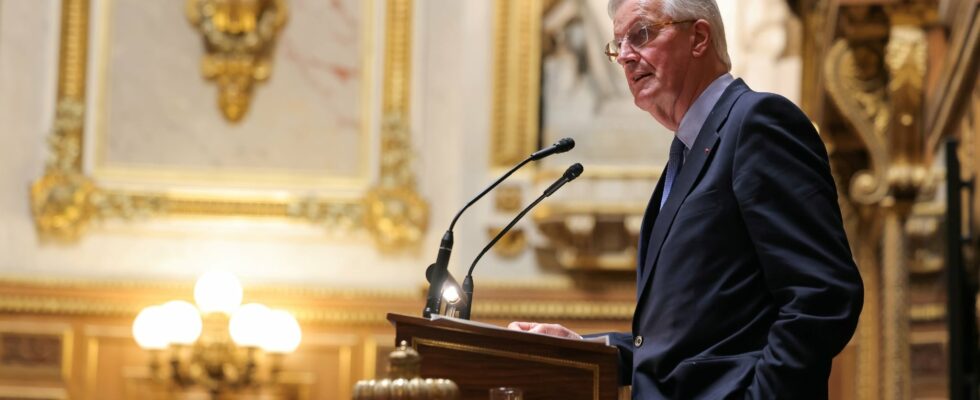It is a new idea which contrasts with the old recipes previously used to tax large fortunes and bring money into the coffers. Killing two birds with one stone is also a smart solution to satisfy the promise of tax justice made by the Prime Minister when he moved to Matignon. While an exceptional and transitional contribution from the richest French people to the recovery of accounts was announced during Michel Barnier’s general policy declaration on Tuesday, secrecy had been jealously kept about the method chosen. We just learned yesterday that the measure would affect 0.3% of tax households, or nearly 65,000 households.
In the past, when it came to making the rich pay, successive governments played either with the ISF, or with a new bracket of income tax or a surcharge on the last existing bracket like the CEHR – the exceptional contribution on high incomes – created in 2011 by Nicolas Sarkozy, and which has never disappeared.
Fiscal imagination having no limits, the Barnier government would have this time chosen to take the matter from the other end: to impose a minimum rate of income tax on large fortunes. On paper, this minimum threshold engraved in the law would prevent a household from partially escaping tax through the multiple tax allowances and tax loopholes that the French system is full of.
For more than ten years, OECD experts have focused on addressing this issue from the business side. A global agreement involving 140 countries signed in October 2021 increased the minimum tax rate for multinationals to 15%. This compromise fell into limbo. Although it was supposed to be ratified by many national parliaments, the American Congress vetoed it at the beginning of the summer, signaling the end of the game. But never, at the international level, has the question of minimum household taxation really been put on the table.
In June 2023, experts from the Institute of Public Policies (IPP) published a note on the actual taxation of very wealthy French households. The originality of the method chosen? Do not rely on the reference tax income to calculate the tax rate but recalculate an “economic income” which would take into account salaries and savings income, but also the profits of companies controlled by tax households.
The results of the study – which was based on anonymized tax data from households and businesses in 2016 – are edifying. The overall tax rate is progressive, but up to a certain level. Around 600,000 euros per year of “economic income”, it is at its zenith: 46% of the pie goes to the tax authorities. Then the rate begins to decline. And for the ultra-rich, or 0.0002% of the French population (75 tax households), it falls to 26%.
If we are to believe our colleagues from EchoesBercy would work on a minimum income tax rate of between 15 and 25%. Problem: the Ministry of the Economy would not have retained, as the IPP experts suggested, a broad vision of income but would have stuck to the classic definition of taxable income. “Normal, since a tax on undistributed income would probably be deemed unconstitutional,” specifies economist and founder of the Fipeco site François Ecalle. Is Barnier’s announcement likely to cause pschitt?
Political high-flying
“The government has clearly missed its target, underlines Clément Malgouyres, one of the authors of the IPP study. If we want this tax to be profitable, we must not start from the reference tax income because all the strategies tax optimization consists precisely in reducing it to the bare minimum. In fact, this minimum tax would essentially affect capital income.
The single flat-rate levy of 30% introduced on January 1, 2018 is in fact broken down between 17% social security contributions and 13% income tax. It is therefore only this part of the income, taxed at 13%, which would be concerned. “Clearly, Michel Barnier’s proposal would amount to increasing the flat tax rate, by bringing capital taxation back to its level before the 2018 reform,” concludes Clément Malgouyres.
Method error or smokescreen to give the illusion of a big tax evening? If the measure is really included in the finance bill which will be presented on October 10, Michel Barnier will have won on both counts: making the left believe that he has heard their wish to tax the big fortunes, and allowing the most fortunate to escape a real bamboo blow. Political high-flying.
.
